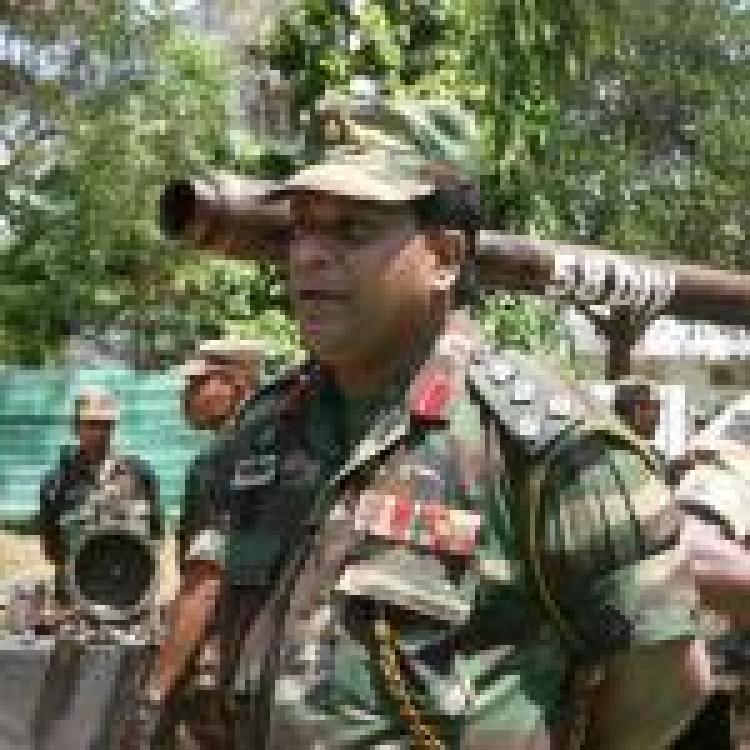
India’s High Commissioner to Sri Lanka shared a laugh with accused Sri Lankan war criminal Shavendra Silva last week, as New Delhi reportedly pledged to continue training Sri Lanka’s military.
Gopal Baglay addressed the Indian Army Trainees Alumni Interaction, organised by the Indian High Commission, and expressed India's willingness to offer training for Sri Lanka.
Several senior Sri Lankan military officials were present, including Silva - Sri Lanka’s chief of defence staff who remains banned from entry to the United States over his role in war crimes. Silva led Sri Lanka's notorious 58 Division during the final stages of the armed conflict which oversaw a litany of human rights abuses including summary executions; the shelling of hospital and food lines; the white phosphorus against civilians; rape and sexual violence; and enforced disappearances.
Baglay also reportedly said that India stands committed to helping Sri Lanka in line with its ‘Neighbourhood First’ Policy.
He added that training engagements between the Armed Forces have “instilled a spirit of brotherhood and interoperability amongst the services”.
"India has always been a pillar of strength in training of Sri Lankan Armed forces personnel and shares strong cultural, demographical and behavioural similarities, as a friendly neighbour," said Silva in response.
He went on to express his gratitude for the training opportunities offered by India.
“Training is the strongest and most enduring pillar of bilateral defence cooperation between India and Sri Lanka,” said a statement from the Indian High Commission.
“Indian and Sri Lankan Armed Forces share critical bilateral training linkages, with Indian Defence Forces’ training institutes, offering the largest share of nearly 1500 training vacancies, annually, to Sri Lanka. The trainees are provided assistance, under the Special Aid Programme (SAP) of the Government of India. Quality training imparted to Sri Lankan personnel in India has contributed immensely towards a mission-ready and cohesive Sri Lanka Armed Forces".


